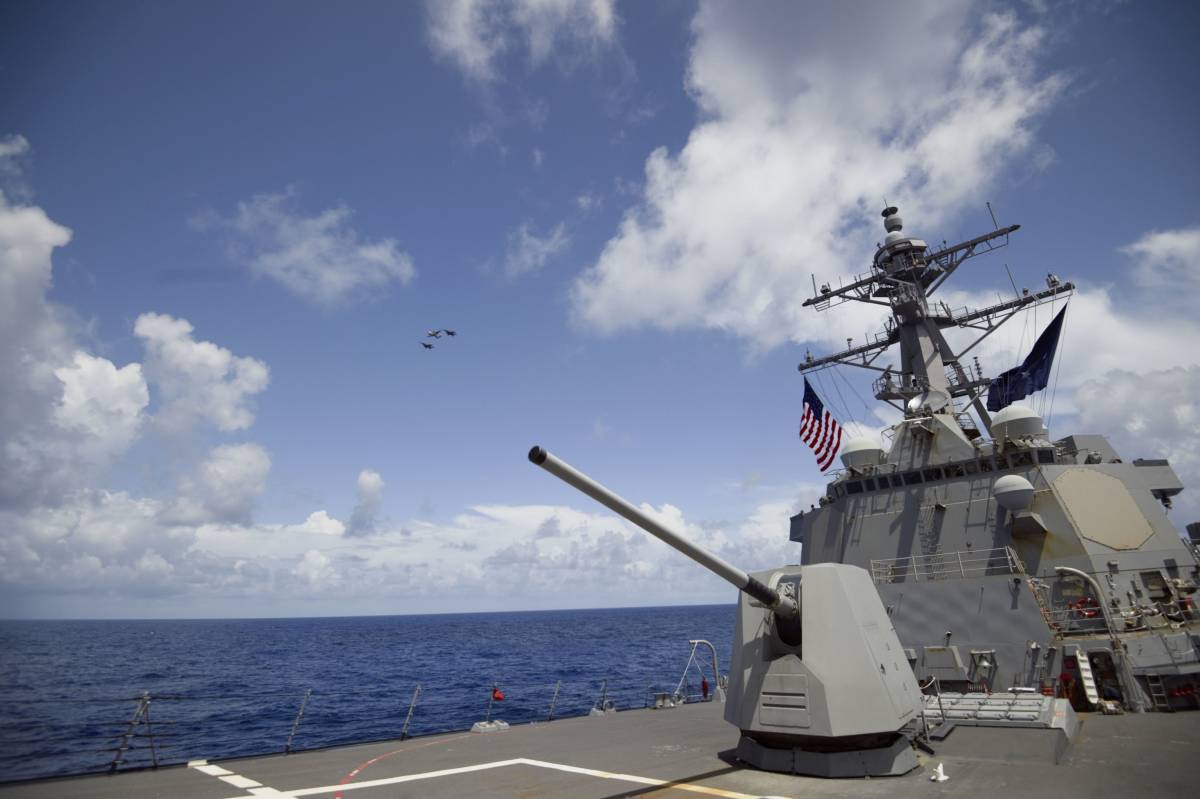US destroyer sails near disputed Paracel Islands in the South China Sea, China says the ship was “driven away” …reports Asian Lite News
A US destroyer sailed near the disputed Paracel Islands in the South China Sea on Wednesday, drawing an angry reaction from Beijing, which said its military had “driven away” the ship after it illegally entering territorial waters.
The United States regularly carries out what it calls Freedom of Navigation Operations in the South China Sea challenging what it says are restrictions on innocent passage imposed by China and other claimants.
The US Navy said the USS Benfold “asserted navigational rights and freedoms in the South China Sea near the Paracel Islands, consistent with international law.”
“Unlawful and sweeping maritime claims in the South China Sea pose a serious threat to the freedom of the seas, including the freedoms of navigation and overflight, free trade and unimpeded commerce, and freedom of economic opportunity for South China Sea littoral nations.”
China says it does not impede freedom of navigation or overflight, accusing the United States of deliberately provoking tensions.
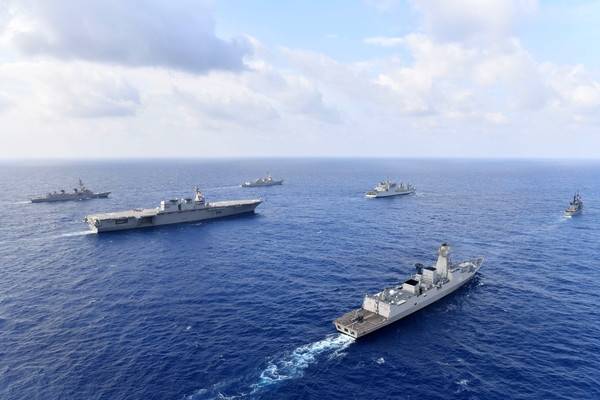
The People’s Liberation Army’s Southern Theatre Command said the US ship’s actions seriously violated China’s sovereignty and security by illegally entering China’s territorial waters around the Paracels, which are also claimed by Vietnam and Taiwan.
“The PLA’s Southern Theatre Command organized sea and air forces to follow, monitor, warn and drive away” the ship, it added.
“The facts once again show that the United States is nothing short of a ‘security risk maker in the South China Sea’ and a ‘destroyer of regional peace and stability.’“
China seized control of the Paracel Islands from the then-South Vietnamese government in 1974.
Monday marked the sixth anniversary of a ruling by an international tribunal that invalidated China’s sweeping claims to the South China Sea, a conduit for about $3 trillion worth of ship-borne trade each year.
China has never accepted the ruling.
China claims almost the entire South China Sea. Vietnam, the Philippines, Malaysia, Taiwan and Brunei all have competing and often overlapping claims.
China has built artificial islands on some of its South China Sea holdings, including airports, raising regional concerns about Beijing’s intentions.
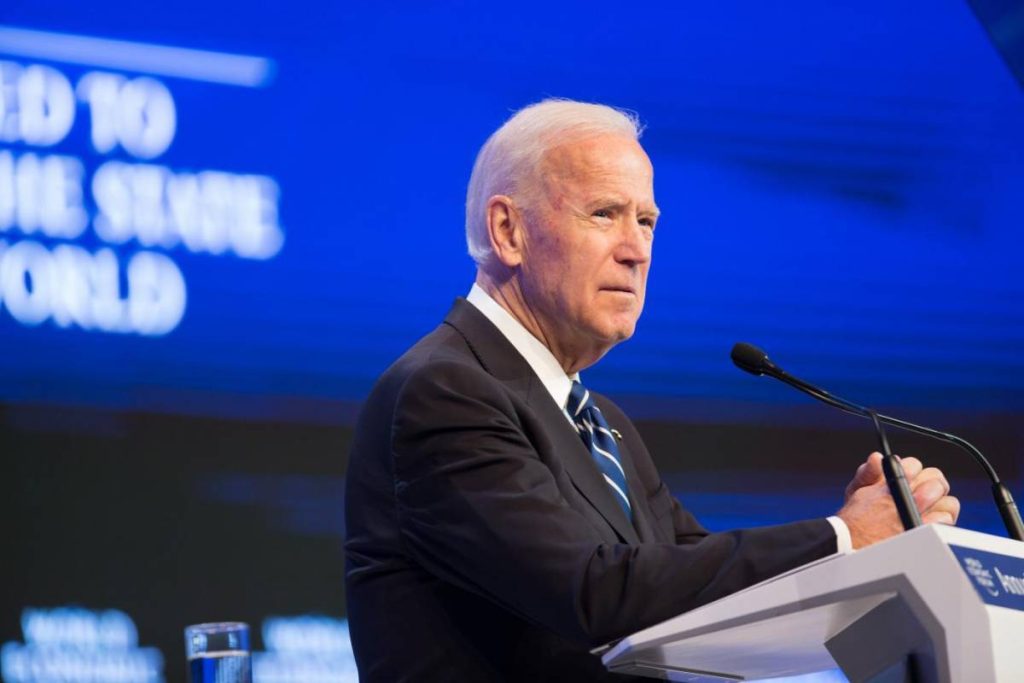
US backs Philippines
The US has warned it will defend the Philippines against any attack on its ships or aircraft in the South China Sea.
US Secretary of State Antony Blinken made the statement on the sixth anniversary of a 2016 decision by an international arbitration tribunal that largely ruled in favor of the Philippines over the disputed maritime border. China did not participate in the arbitration.
“We re-affirm that an armed attack on Philippine armed forces … would invoke US mutual defense commitments,” Blinken said in a statement on Tuesday. The mutual defense commitments stem from a 1951 treaty between the allies.
“We call again on the People’s Republic of China to abide by its obligations under international law and cease its provocative behavior,” he added.
The Philippines’ newly appointed foreign secretary, Enrique Manalo, said on Tuesday that the 2016 court findings “are conclusive as they are indisputable.”
“We firmly reject attempts to undermine it; nay, even erase it from law, history and our collective memories,” Manalo added, without mentioning China by name.
The new administration has indicated a renewed focus on the maritime dispute — and the 2016 court ruling — after a period of warmer ties with China under Rodrigo Duterte, the former president.
Activists in the Philippines also staged a protest outside the Chinese consulate in Makati to mark the anniversary of the arbitration tribunal.
It comes a day after Chinese Foreign Minister Wang Yi warned leaders at the Association of Southeast Asian Nations (ASEAN) secretariat in Jakarta, Indonesia, not to be used as “chess pieces” by major powers.
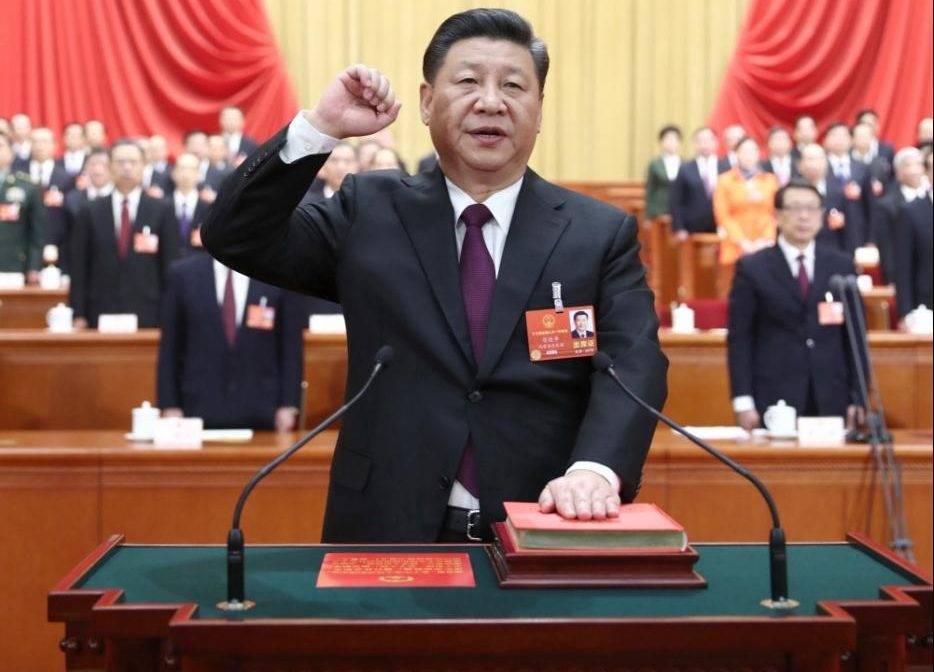
China and the Philippines have been engaged in a decades-long dispute over swaths of the South China Sea, which include several tiny islands and reefs. Each country claims the sea as its historic fishing waters.
Vietnam, Taiwan, Malaysia and Brunei also have overlapping claims in the sea.
The waterway is a key global shipping route and sees roughly $5 trillion (€5 trillion) worth of goods transported each year.
The South China Sea is also believed to be rich in oil and gas deposits.
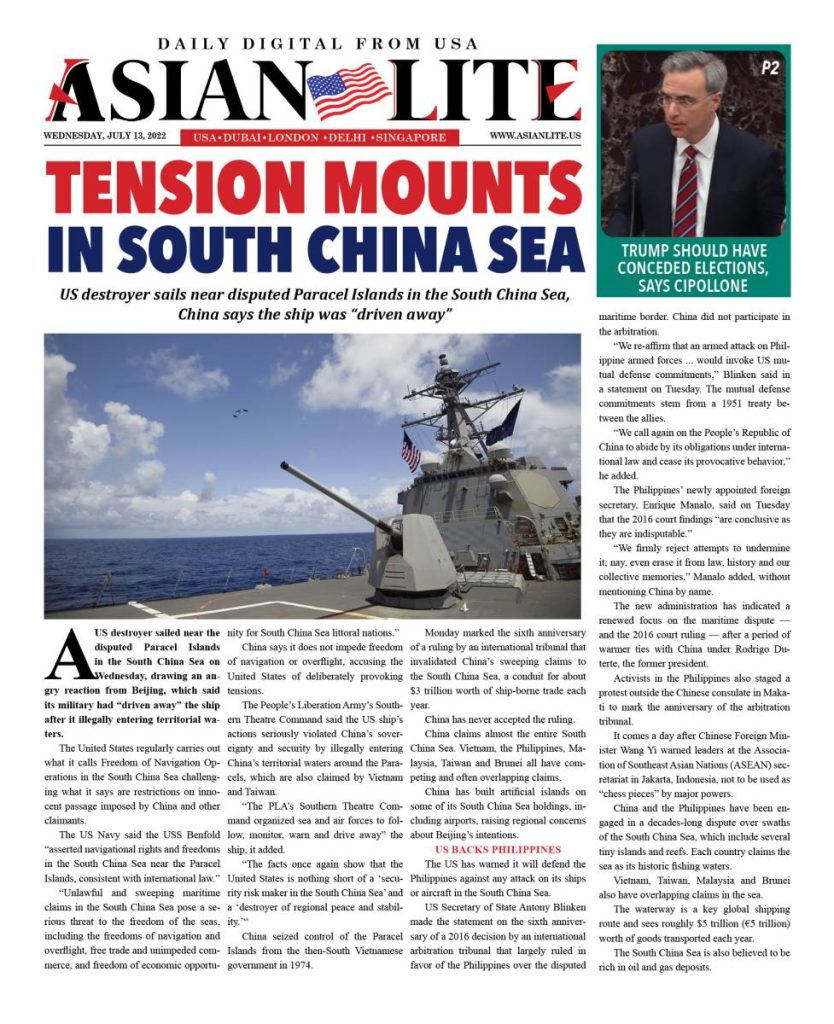
China vows on code of conduct
Chinese Foreign Minister Wang Yi yesterday pledged to speed up consultations with the Association of Southeast Asian Nations (ASEAN) on the long-awaited Code of Conduct for the South China Sea. While it is unlikely to signal much progress on the perennially promised agreement, it does offer an insight into how Beijing is seeking to counter the recent U.S. diplomatic offensive in the region.
Wang made the comments during a meeting with Malaysian Foreign Minister Saifuddin Abdullah in Putrajaya, the final stop of a five-nation tour of Southeast Asia that has also taken him to Myanmar, Thailand, the Philippines, and Indonesia.
According to a report by Malaysian state media agency Bernama, Wang pledged that China would speed up consultations on the Code of Conduct (COC) and “advocate true multilateralism and advanced open regionalism.”

